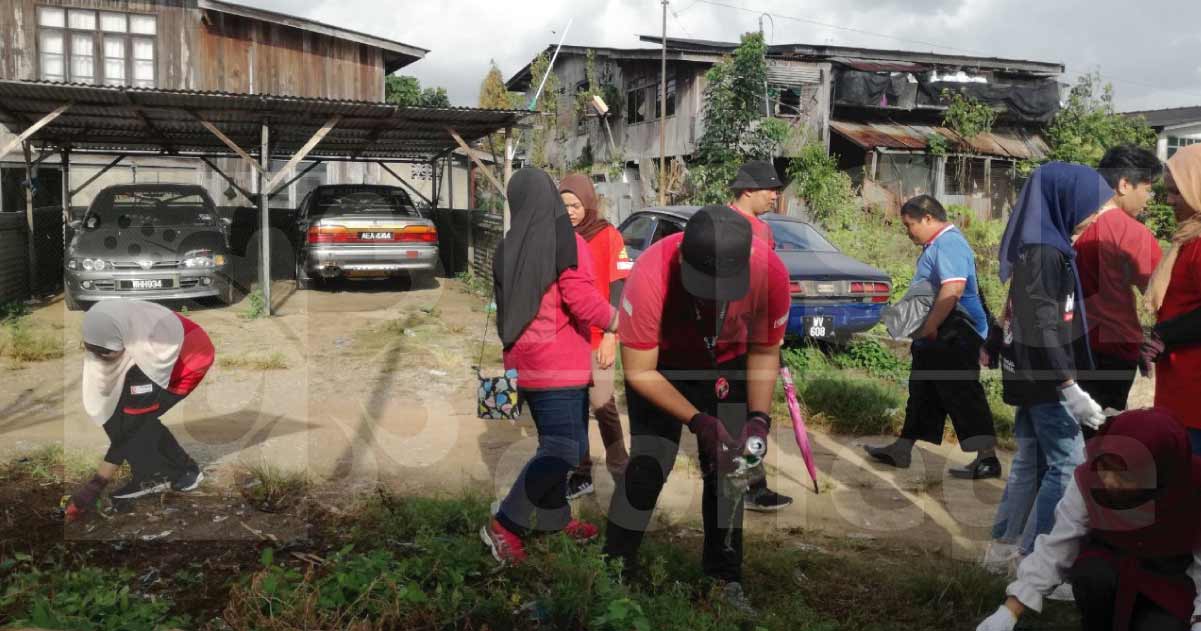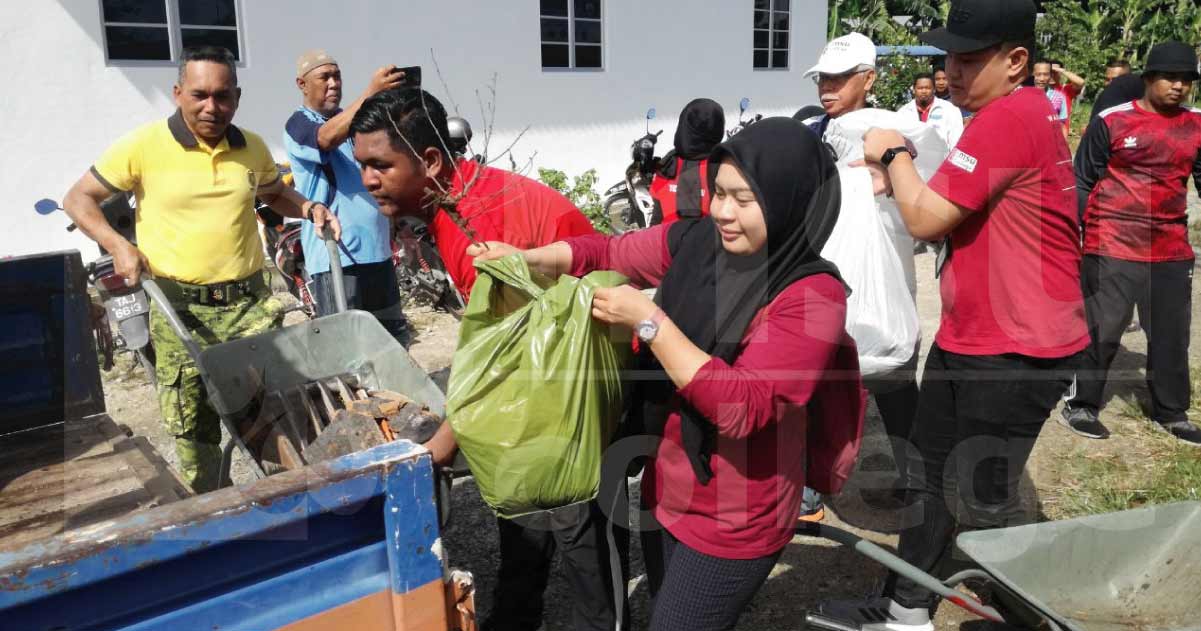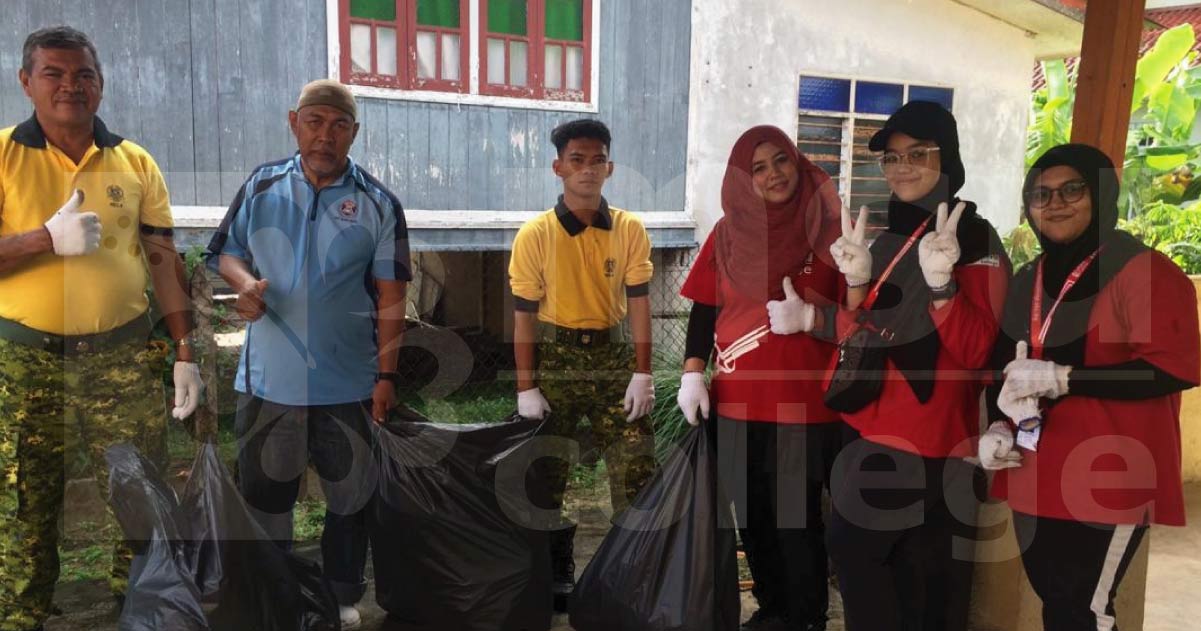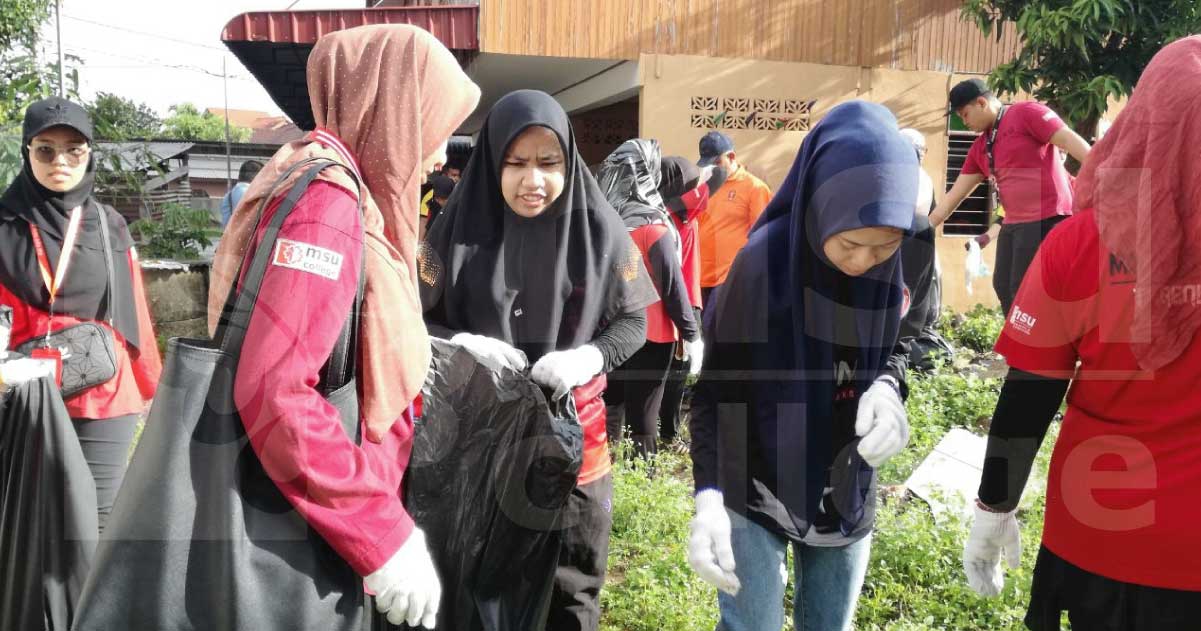

Infectious as well as non-communicable diseases are among the focus groups of the UN’s sustainable development goal for good health and wellbeing (Goal 3 of the UNSDGs). Further into the focus are sanitation and hygiene, which are linked to sixty percent of the disease burden from diarrhoea and to a hundred percent of the burden from infections by soil-transmitted helminths.

Ongoing in many parts of the world is the fight against malaria, and sharing malaria’s transmission method by mosquitoes is dengue – an equally life-threatening disease. Found in tropical and sub-tropical climates, mostly in urban and sub-urban areas, dengue can be controlled by sustained community involvement.
Last February, students of MSU College Terengganu engaged in preventive measures at Kuala Terengganu’s Kampung Gong Baru, a small village in the district of Kampung Gong Tok Nasek.

Spending half a day volunteering with villagers at their dengue prevention Gotong Royong Cegah Denggi, accompanied by the village’s Rukun Tetangga community, they were joined by officials from the Kuala Terengganu District Health Department, the Kuala Terengganu City Council (MBKT), the Kuala Terengganu RELA (the Volunteers Department of Malaysia), and the Terengganu Civil Defence Department.

Besides establishing a good relationship with the villagers and the authorities involved, the collaboration’s various cleaning-up activities also raised awareness and knowledge levels on responsibility to self and the environment.

Remarked MSUrian Nur Hanan Sofia Mohd Azhar, “It’s a good platform to strengthen the spirit of neighbourliness. It feels great to be in this together doing our bit for dengue prevention.”
MSU Bachelor in Environmental Health (Hons)
MSU Bachelor in Health Science Management (Hons)
MSU Master in Public Health
Infectious as well as non-communicable diseases are among the focus groups of the UN’s sustainable development goal for good health and wellbeing (Goal 3 of the UNSDGs). Further into the focus are sanitation and hygiene, which are linked to sixty percent of the disease burden from diarrhoea and to a hundred percent of the burden from infections by soil-transmitted helminths.

Ongoing in many parts of the world is the fight against malaria, and sharing malaria’s transmission method by mosquitoes is dengue – an equally life-threatening disease. Found in tropical and sub-tropical climates, mostly in urban and sub-urban areas, dengue can be controlled by sustained community involvement.
Last February, students of MSU College Terengganu engaged in preventive measures at Kuala Terengganu’s Kampung Gong Baru, a small village in the district of Kampung Gong Tok Nasek.

Spending half a day volunteering with villagers at their dengue prevention Gotong Royong Cegah Denggi, accompanied by the village’s Rukun Tetangga community, they were joined by officials from the Kuala Terengganu District Health Department, the Kuala Terengganu City Council (MBKT), the Kuala Terengganu RELA (the Volunteers Department of Malaysia), and the Terengganu Civil Defence Department.

Besides establishing a good relationship with the villagers and the authorities involved, the collaboration’s various cleaning-up activities also raised awareness and knowledge levels on responsibility to self and the environment.

Remarked MSUrian Nur Hanan Sofia Mohd Azhar, “It’s a good platform to strengthen the spirit of neighbourliness. It feels great to be in this together doing our bit for dengue prevention.”
MSU Bachelor in Environmental Health (Hons)
MSU Bachelor in Health Science Management (Hons)
MSU Master in Public Health